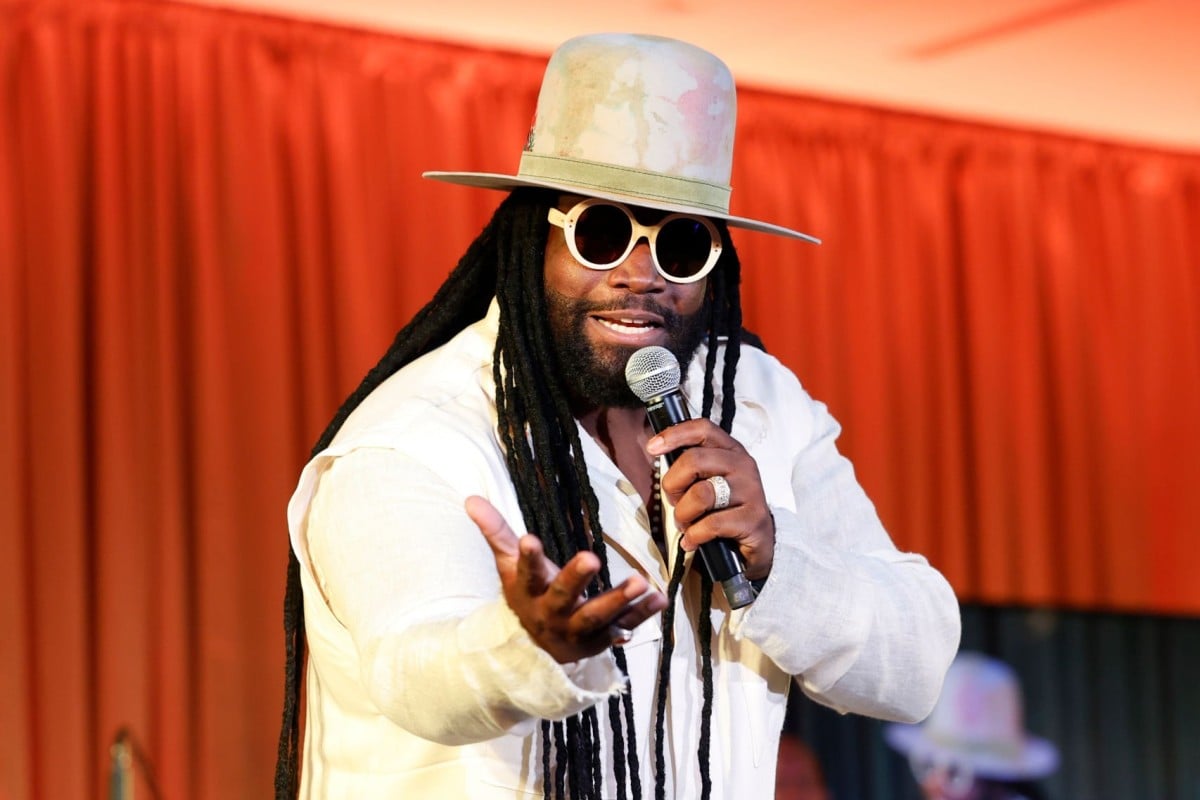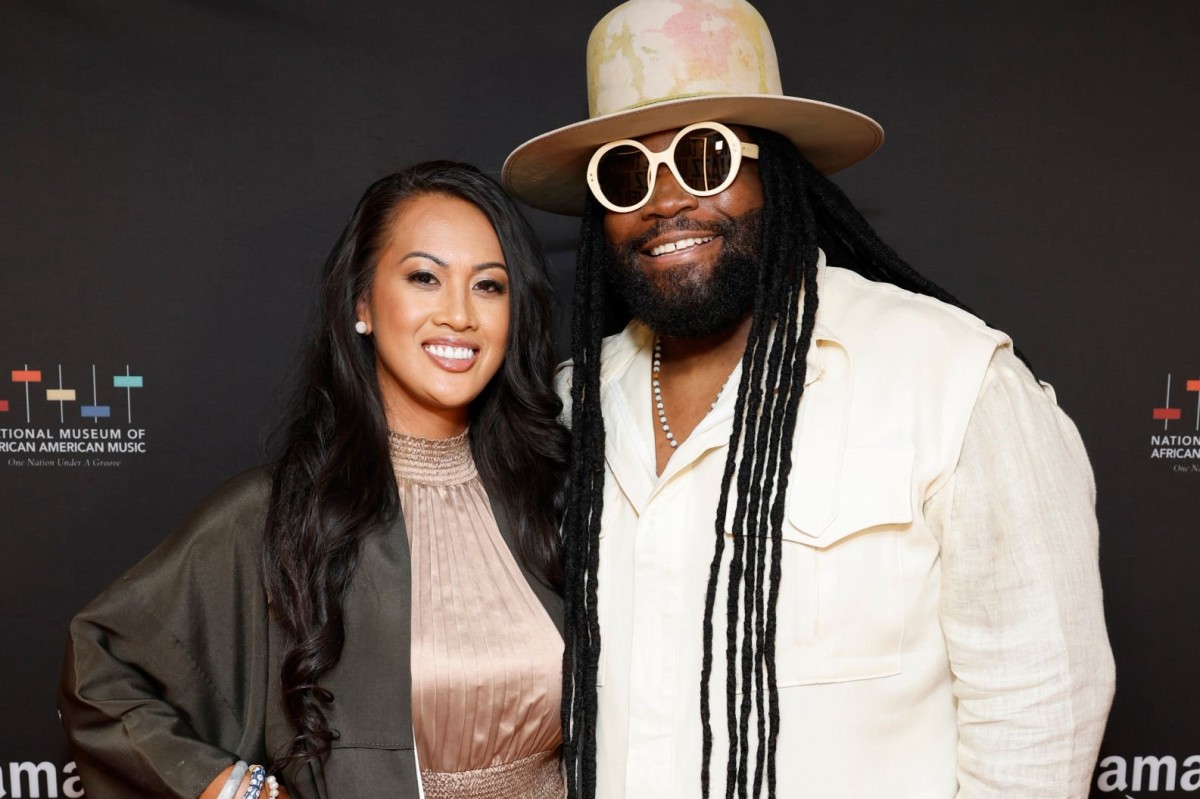Gramps Morgan On Getting His Jamaican Citizenship: “One Of The Greatest Days Of My Life”

Reggae artist Gramps Morgan says it is imperative that descendants of Jamaicans who have migrated to other countries claim their Jamaican citizenship by descent, as it is their rightful heritage.
According to the Brooklyn-born Grammy Award-winning singer, officially claiming his Jamaican citizenship two years ago—after previously only using unconditional landing status—was one of the most momentous occasions in his life, as it highlighted the deep reverence and pride he feels for his Jamaican lineage.
“It was one of the greatest days of my life… With your nationality, by identifying with that, there should be a sense of patriotic energy in you when you, get that,” Gramps told DancehallMag at the recently-held Jamaica Diaspora Conference in Montego Bay.
“It’s very important, the same way if you’re a descendant, a bloodline of Jewish descent, you have that birthright. If you’re born in New York, born in Miami and your parents are from Israel, you have that birthright. So I believe that it’s very important that we as Jamaicans, especially parents that are born in Jamaica and moved to places like the UK, Canada, America, all over the world, to make sure dem children know their roots,” he explained.
Gramps said his feeling of triumph upon getting his Jamaican citizenship stemmed from the pride his ancestors have always had in the land of their birth, even after moving overseas for better financial opportunities.
“And I’ll never forget many people, when they even go from different countries and they go to get a Canadian passport or American passport and they say, oh, I got my US citizenship. That was my sense of feeling where I feel like, ‘yo, I’m getting a Jamaican citizenship’. And that pride goes back to my grandfather, my grandmother, that essence of what they sacrificed to come to America for a better life and opportunity,” he explained.
Gramps was born in Brooklyn, New York, but raised in Springfield, Massachusetts. He’s the son of the late Reggae singer Denroy Morgan, who left Jamaica in 1965 at the age of 19 and traveled to the United States to become a musician. Morgan, who passed away in 2022 at age 76, also fathered 30 children, who formed several groups, including the Grammy Award-winning Morgan Heritage, which initially began with Gramps and seven other siblings in the 1990s.
According to Jamaica’s Passport Citizenship and Immigration Agency (PICA), a person is eligible for citizenship by descent if their mother or father either became or would have become (if not for their death), a citizen of Jamaica on Independence Day, August 6, 1962.
Additionally, PICA says a person also qualifies if they were born outside Jamaica after August 5, 1962, and at the time of their birth, their mother or father was a citizen of Jamaica by birth, descent, or registration through marriage to a Jamaican.
In addition to claiming citizenship, Gramps also said he believes it is important for Jamaican descendants to master the Jamaican Patois language, as he has done.
“It is important for them to even speak their language… if you move to Germany, you have to learn some German. You move to Japan, you have to learn some Japanese. So it’s, but it’s very important to hold on to the essence of our language. That is a frequency in our language. It’s the same way if I tell you something like I’m on a Wi-Fi, if you don’t know the password, you won’t log on,” he explained.
“So if you [should] know the frequency that our language, because there’s an energy that travels in the language. So like a lot of people said to me, ‘yo, yuh speak Patois to yuh pickney dem?’ And I say, ‘I can’t speak another language’. You can’t speak Spanish or French. We are Jamaican,” the Runaway Bay singer explained.
Gramps believes that Jamaica is heading in the right direction, given the scale of developments taking place there, including in St Thomas, where his ancestral roots are and where he has significant real estate investments.
“No weh nuh nice like Jamaica, let’s not get it twisted. Hello. So, but for opportunity and to take care of family, we have to go overseas, but we’re moving in the right direction. I’ve seen a lot of growth in Jamaica and the government is doing their best. But what I’ve seen in the past four to eight years, there’s a lot of development going on in Jamaica. A lot of things that still needs to be changed, but I think we’re in a good direction,” he emphasized.
In the United States, Gramps settled in Nashville, Tennessee, in 2012, after reportedly falling in love with the “Music City” while on a tour with India Arie.
He’s married to cell and developmental biologist Dr. Annabelle Manalo-Morgan, with whom he shares five children.


